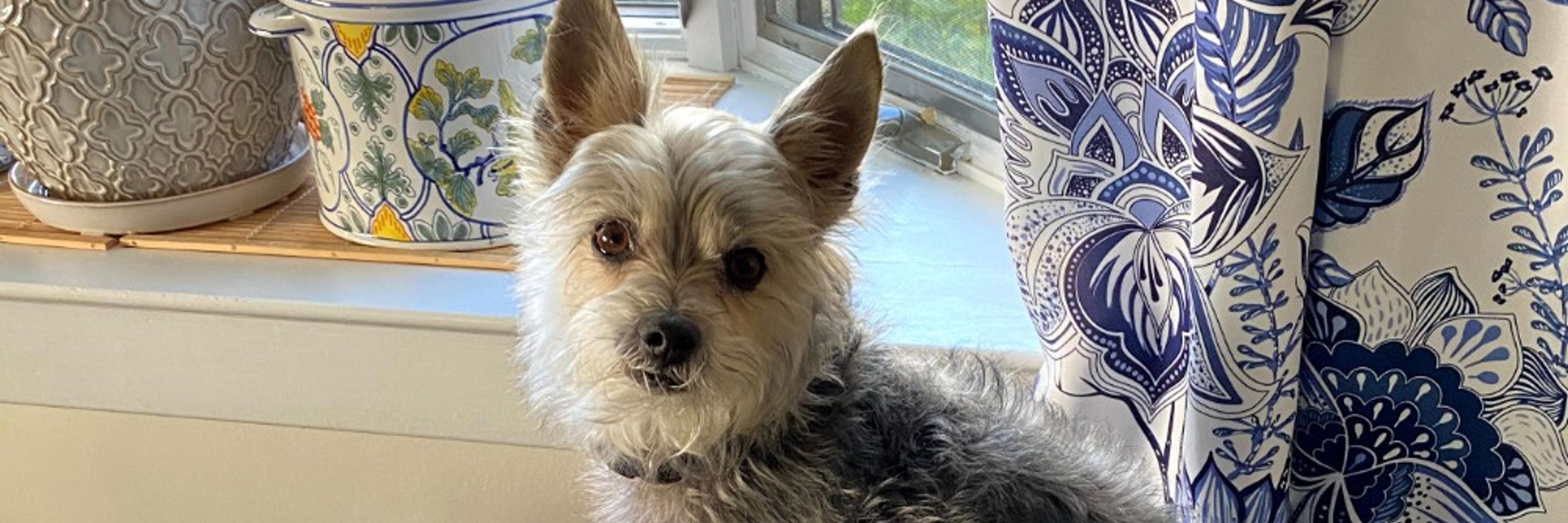
Chris Baldassano
@chrisbaldassano.bsky.social
Associate Professor in Psychology at Columbia, PI of https://www.dpmlab.org/
We also looked at kids' verbal recalls of the movies! Interestingly, we found that recalls in kids who report weaker attachment are more focused on the Searching event in the attachment schema.
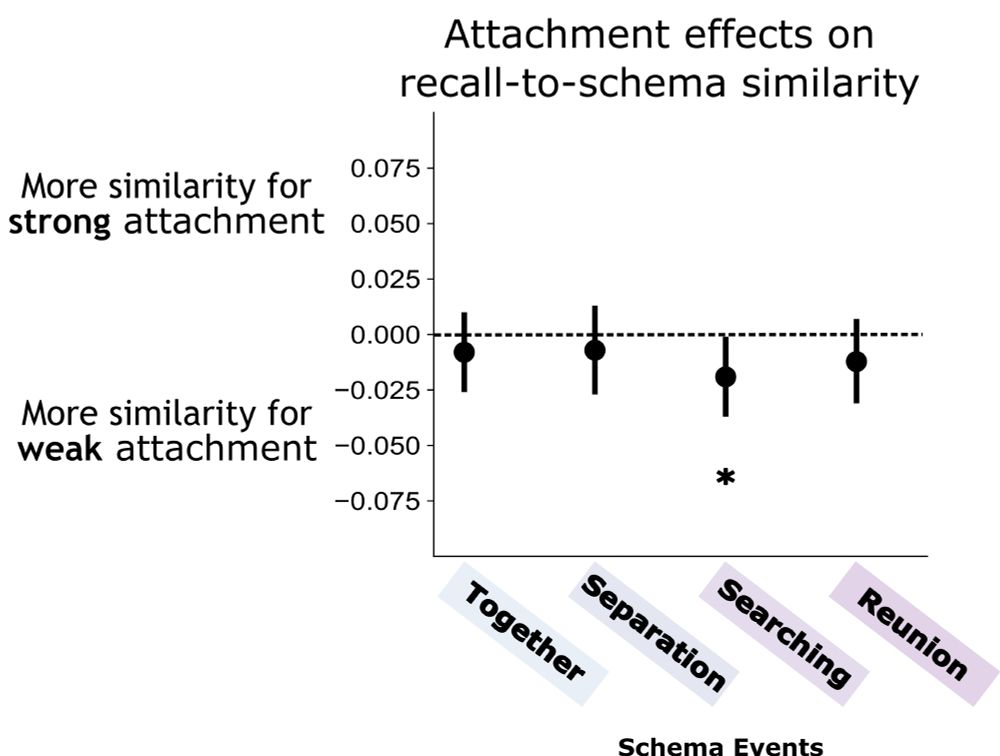
April 10, 2025 at 1:47 PM
We also looked at kids' verbal recalls of the movies! Interestingly, we found that recalls in kids who report weaker attachment are more focused on the Searching event in the attachment schema.
Looking at kids’ brain activity related to caregiver stability, we show that kids with unstable caregiver histories have more connectivity between the amygdala and visual processing regions + hippocampus.
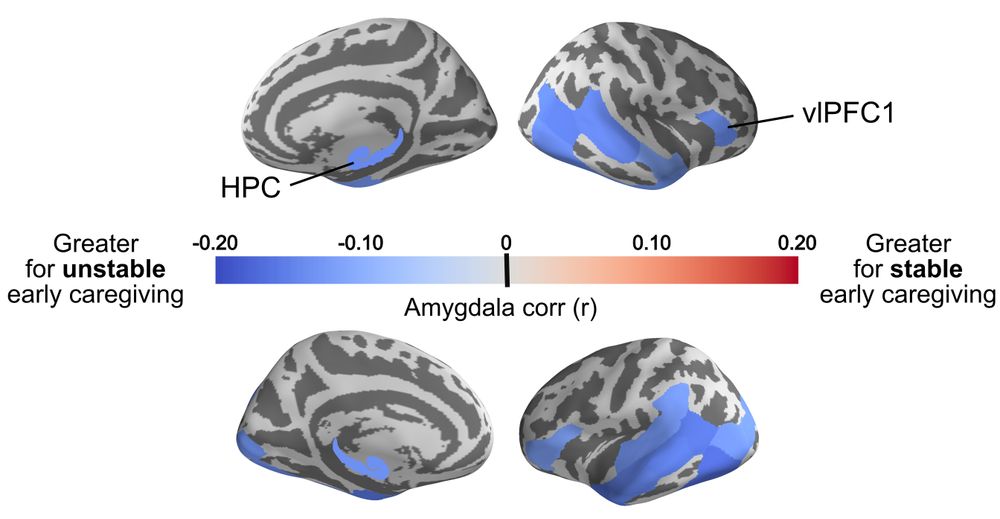
April 10, 2025 at 1:47 PM
Looking at kids’ brain activity related to caregiver stability, we show that kids with unstable caregiver histories have more connectivity between the amygdala and visual processing regions + hippocampus.
Our results show that there are indeed differences in brain responses! Kids who report stronger attachment to their current caregiver(s) have more connectivity between the amygdala and vmPFC. Whole-brain results show that heightened amygdala connectivity also shows up in lateral frontal regions.
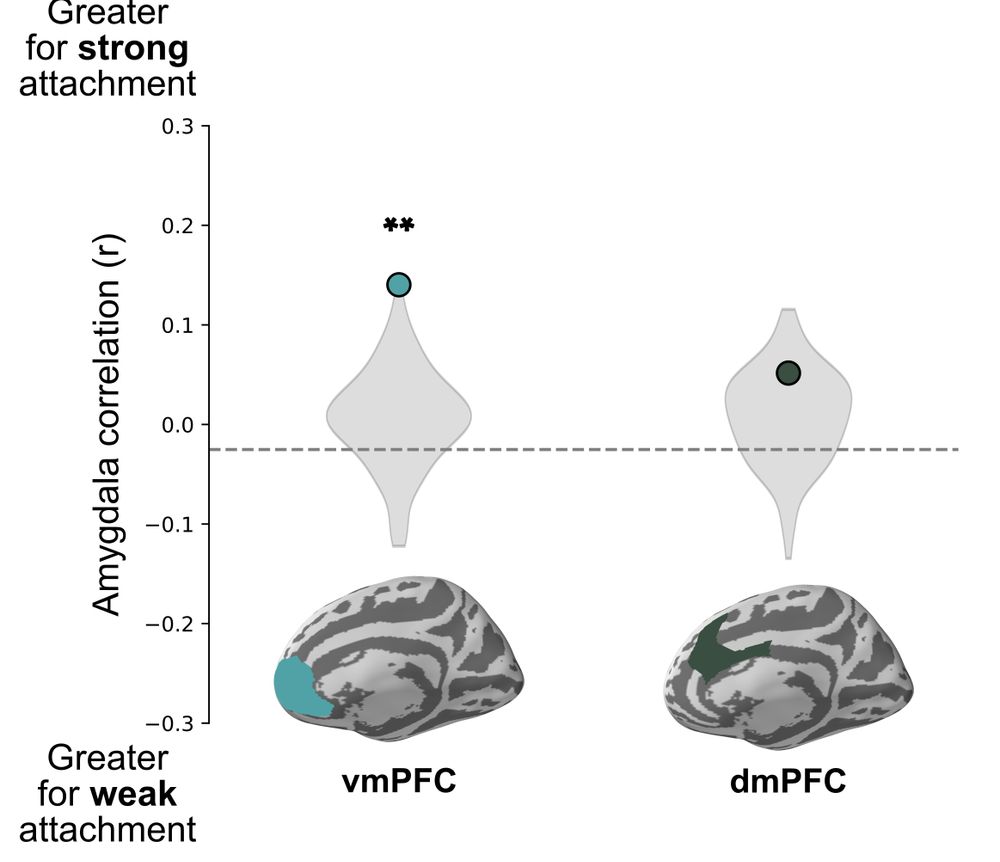
April 10, 2025 at 1:47 PM
Our results show that there are indeed differences in brain responses! Kids who report stronger attachment to their current caregiver(s) have more connectivity between the amygdala and vmPFC. Whole-brain results show that heightened amygdala connectivity also shows up in lateral frontal regions.
We compared brain responses to the movies based on childhood experiences: caregiver stability (caregiver switch/es vs no switch) and caregiver attachment (weak vs strong). We examined response patterns in the amygdala to other regions in the brain with ISFC (Inter-Subject Functional Connectivity).

April 10, 2025 at 1:47 PM
We compared brain responses to the movies based on childhood experiences: caregiver stability (caregiver switch/es vs no switch) and caregiver attachment (weak vs strong). We examined response patterns in the amygdala to other regions in the brain with ISFC (Inter-Subject Functional Connectivity).
To understand whether childhood experiences such as changing caregivers (in the past) and attachment security (in the present) impact how kids view attachment narratives in movies, we had kids watch a short movie edited to depict 4 crucial events of an attachment schema while collecting fMRI.
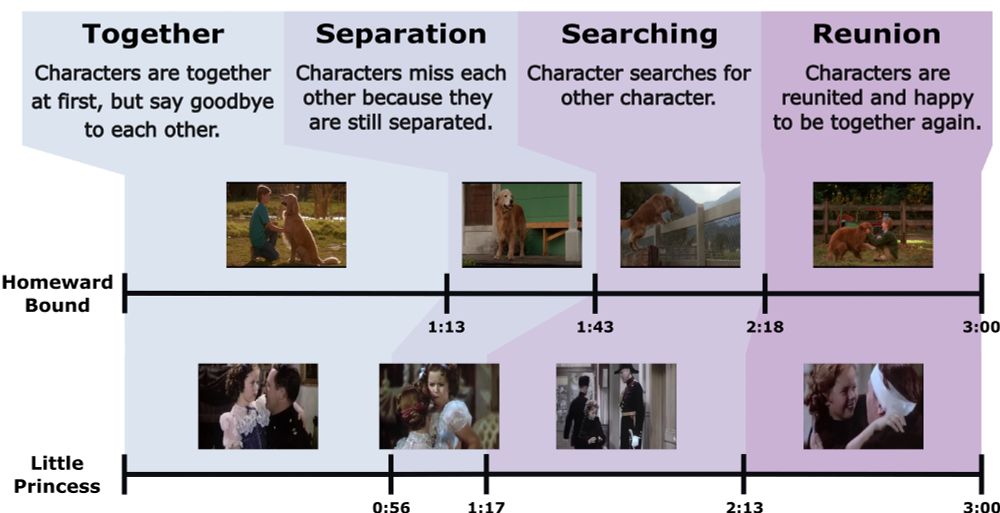
April 10, 2025 at 1:47 PM
To understand whether childhood experiences such as changing caregivers (in the past) and attachment security (in the present) impact how kids view attachment narratives in movies, we had kids watch a short movie edited to depict 4 crucial events of an attachment schema while collecting fMRI.
At NeurIPS this week, led by Caroline Lee in collab w/ Haxby lab: we present the Hyper-HMM, to simultaneously align participants' spatial brain patterns (like hyperalignment) and temporal dynamics (with event segmentation), and align brain events to stimulus features!
www.dpmlab.org/papers/8510_...
www.dpmlab.org/papers/8510_...
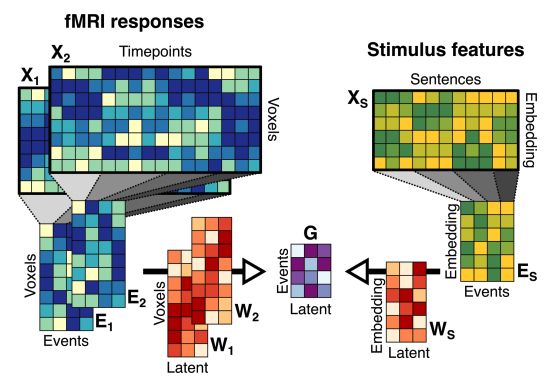
December 15, 2023 at 4:30 PM
At NeurIPS this week, led by Caroline Lee in collab w/ Haxby lab: we present the Hyper-HMM, to simultaneously align participants' spatial brain patterns (like hyperalignment) and temporal dynamics (with event segmentation), and align brain events to stimulus features!
www.dpmlab.org/papers/8510_...
www.dpmlab.org/papers/8510_...
New preprint led by @huangjiawen.bsky.social: we find that predictable stimuli are better remembered for two separate reasons: making correct predictions improves memory, and likely stimuli can be more easily reconstructed. We can independently manipulate these two factors!
osf.io/preprints/ps...
osf.io/preprints/ps...
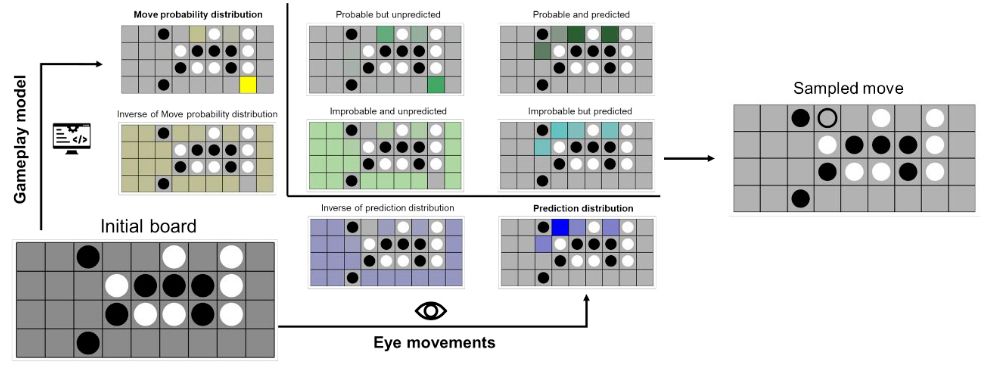
December 15, 2023 at 3:17 PM
New preprint led by @huangjiawen.bsky.social: we find that predictable stimuli are better remembered for two separate reasons: making correct predictions improves memory, and likely stimuli can be more easily reconstructed. We can independently manipulate these two factors!
osf.io/preprints/ps...
osf.io/preprints/ps...
Nice news article on my paper w/ Tal Golan, Matt Siegelman, and Niko Kriegeskorte, describing a method for finding "weak spots" in language models and testing how well they can predict human judgments: bit.ly/3PAbI4w
Full paper is out in Nature Machine Intelligence now! rdcu.be/dl91g
#psychscisky
Full paper is out in Nature Machine Intelligence now! rdcu.be/dl91g
#psychscisky

September 16, 2023 at 9:19 PM
Nice news article on my paper w/ Tal Golan, Matt Siegelman, and Niko Kriegeskorte, describing a method for finding "weak spots" in language models and testing how well they can predict human judgments: bit.ly/3PAbI4w
Full paper is out in Nature Machine Intelligence now! rdcu.be/dl91g
#psychscisky
Full paper is out in Nature Machine Intelligence now! rdcu.be/dl91g
#psychscisky

